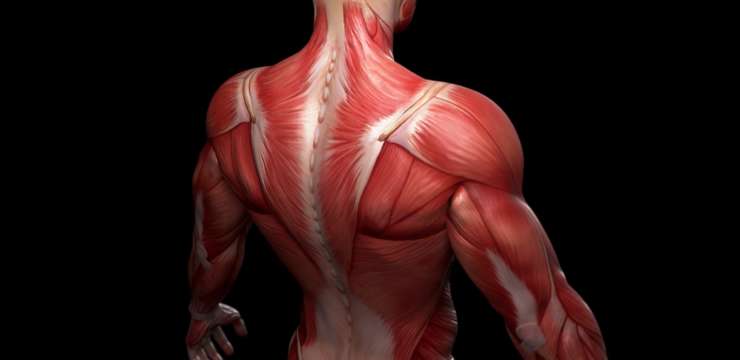A non-invasive method of treating scoliosis. Yoga Has Been Shown To Help Reverse Scoliosis. Scoliosis is the lateral curvature of the spine. The spine bends…


A non-invasive method of treating scoliosis. Yoga Has Been Shown To Help Reverse Scoliosis. Scoliosis is the lateral curvature of the spine. The spine bends…


Aging by definition is a “cascade of robustness breakdown triggered by a decrease in systemic NAD+ biosynthesis and the resultant functional defects in susceptible organs…

Scoliosis in adolescents and teens can be corrected with proper bracing, adjustments and lead a normal life. For adult scoliosis correcting the problem is more…


Thyroid function is crucial to maintain health. The balance and secretion of hormones like T3 and T4 orchestrate the metabolic process. However, a dysfunctional thyroid…

As previously stated, menopause is a turning point in a women’s life, a rite of passage that will commence the next step. Indeed, menopause itself…

Bursitis types: This is a condition that affects the bursae, which are the small, fluid-filled sacs that provide cushion for the: Muscles Tendons Bones near…
Surgery options when back pain is becoming chronic or so severe that an individual cannot function normally and negatively affects their life. Pretty much everyone…

Pregnancy is an exciting time in a woman’s life. A healthy pregnancy is the objective, and therefore, essential to maintain a healthy diet and stay…

Women’s menstrual cycle means, for most of them, going on a rollercoaster of feelings. Indeed, the menstrual cycle comes with familiar symptoms that are typical…

Individuals and doctors have praised the anti-inflammatory, pain-relieving properties of drinking tea. Inflammation is the body’s natural immune response when injury and infection present. This…

Losing weight can be one of the hardest things to do. It is also one of the best things anyone can do to get rid…

The gut has a significant impact on the rest of the body systems. Research has shown an overlap in risk profiles when assessing the gut and its connection to the other human body systems. For example, the chronic health conditions linked to gut dysfunction are eczema, leaky gut, brain fog, headaches, inflammation, swelling, and an abundance more.Â
The Gut
The human gut is flooded with pathogens and bacteria. These gut pathogens are essential for health and proper function. The bacteria that infest the gastrointestinal tract is combined with both positive and negative commensals. The digestive tract associated with these microbes is known as the gut microbiome. The gut microbiome has an essential role in disease and overall health. There are over 1000 microbial species living within the gut.Â
The growth and involvement of the human microbiome begin at birth. An infant does not have many pathogens. However, at birth, they are quickly colonized. As infants pass through the mother’s birth canal, they are exposed to the mother’s microbiome. This process heavily influences the child’s intestinal flora. Infants who were born via cesarean section showed a reduced number of microbes by the age of just one month.Â
Additionally, the human microbiome contains genes that are linked to metabolic processes. The bacteria in the human gut produce essential nutrients such as vitamins and hold a high responsibility to synthesize amino acids. The lining of the gut consists of tight junctions. Over time, these tight junctions can become irritated if the bacteria is off balance or food is not being digested properly. When food becomes an irritant, it causes the body to create additional inflammation. The undigested food particles then begin leaking out of the gut, back into the bloodstream.Â
Inflammatory Pathways Impacted By Gut HealthÂ
The intestinal epithelium layer is the main component separating the immune system and the external environment. Cells alert threats from pathogens by signaling the immune system through receptors that are associated with specific bacteria in the gut. These responses lead to the release of peptides, cytokines, and white blood cells. These responses can even trigger cell death.Â
The gut-brain axis is communication that relies on neural, hormonal, and immunological signaling. This communication is directly related, and stress has been shown to influence the integrity of the gut and its production, ultimately leading to changes in metabolism.Â
IBS is abdominal pain or discomfort associated with inflammation and changes in gut habits. Those who have higher bad bacteria levels in their gut suffer from more inflammation and side effects associated with IBS.Â
Inflammatory pathways can disrupt many body functions. Some have been linked to metabolic diseases such as type 2 diabetes. Although type 2 diabetes is a complex disorder influenced by genetic and environmental factors, it may also involve the composition of the intestinal microbiota.Â
Gut Health and The Musculo-Skeletal SystemÂ
As previously stated, the gut microbiota is now recognized as a major contributor to health-related issues of the host. With imbalanced microbiota (associated with undernutrition, inflammatory and metabolic diseases, etc.), we see the influence of skeletal muscle and how it is impacted in relation to growth, performance, aging, and chronic diseases.Â
Conversely, microbial imbalance alters the intestinal barrier (leaky gut), allowing the passage of endotoxins (like undigested food particles and lipopolysaccharides). These endotoxins trigger innate immunity, leading to low-grade inflammation and, as a consequence, muscular disorders.Â
Additionally, we see muscle loss and weakness linked to increased morbidity and mortality recently related to systemic inflammation.
Chiropractic can be defined as “a system of healthcare which is based on the belief that the nervous system is the most important determinant of a person’s state of health.” Chiropractic treatments include the manipulation of the spine. With the manipulation of the spine, digestive disorders have seen improvement. Regular chiropractic visits are also shown to help decrease overall inflammation. Â
InBody
Considering the topic of inflammation, the use of the InBody 770 provides an ECW/TBW ratio. This ratio considers science down to the orthomolecular level and is an inflammation indicator. Additionally, the InBody 770 report shows a breakdown of the water in each limb. This chart is helpful in understanding and pinpointing where inflammation is occurring. Additionally, we use the InBody 770 to see a patient’s SMM (skeletal muscle mass), body fat mass, percent body fat, visceral fat (a risk factor indication related to heart attack, stroke, and type two diabetes), and phase angle. The video below provides more information on how a BIA analysis works to provide this information.
Ways To Help Your GutÂ
THERE ARE MANY WAYS TO IMPROVE GUT HEALTH AND REDUCE INFLAMMATION. I HIGHLY RECOMMENDED HAVING LAB TESTING DONE TO TEST YOUR MICROBIOTA AND SEE WHAT STRAIN STRENGTH AND TYPE OF PROBIOTICS WILL HELP YOUR BACTERIA. ASIDE FROM THAT, EATING FERMENTED FOODS AND AVOIDING INFLAMMATORY TRIGGERS WILL REDUCE INFLAMMATION AS WELL. ANOTHER TEST I RECOMMENDED IS A FOOD SENSITIVITY TEST. THIS TEST WILL SHOW WHAT FOODS YOU ARE HAVING REACTIONS TO, AND THE SEVERITY OF THE DAMAGE CAUSED EACH TIME YOU INGEST THEM. -KENNA VAUGHN, ACSM-CEP, SENIOR HEALTH COACHÂ
Sample reports for both of these tests are shown below:Â
[wp-embedder-pack width=”100%” height=”400px” download=”all” download-text=”” url=”https://www.vibrant-america.com/secure/home/DownloadDoc?video_id=2&document_id=1&doc_mime_type=pdf&doc_name=MK-0081-01%20New%20Food%20Summary%20Sample%20Report” /]
[wp-embedder-pack width=”100%” height=”400px” download=”all” download-text=”” url=”https://www.vibrant-america.com/secure/home/DownloadDoc?video_id=2&document_id=1&doc_mime_type=pdf&doc_name=MK-0026-11%20Gut%20Zoomer%203.0%20Sample%20Report” /]
References:Â
Bull, M. J., & Plummer, N. T. (2014). Part 1: The Human Gut Microbiome in Health and Disease. Integrative medicine (Encinitas, Calif.), 13(6), 17–22. Â
Gizard, F., Fernandez, A., & De Vadder, F. (2020). Interactions between gut microbiota and skeletal muscle. Nutrition and metabolic insights, 13, 1178638820980490. doi.org/10.1177/1178638820980490Â
Segen JC. Dictionary of alternative medicine. Stamford: Appleton and Lange; 1998. Â

Tennis is a sport that can be enjoyed by individuals of all ages and provides optimal physical activity and cardiovascular exercise. Although it can be leisurely,…

Almost one-third of a woman’s lifetime is composed of her post-menopausal years. However, to make it to that time, several rites of passage need to…

The hands are used for all kinds of tasks/chores day and night. Using the hands requires the wrists. When wrist pain presents, it can make…